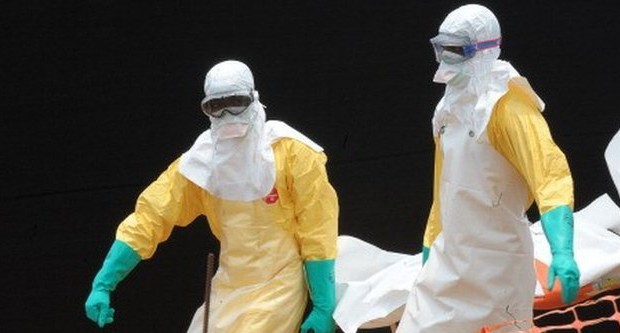
The UN Mission for Ebola Emergency Response will not meet its December 1 deadline to contain the Ebola virus, the agency said Monday, citing escalating numbers of cases in Sierra Leone and new hotspots emerging elsewhere in the region.
The mission set the goal in September, seeking to have 70 percent of Ebola patients under treatment and 70 percent of Ebola victims safely buried. That target might be achieved in some areas, head of UNMEER Anthony Banbury told Reuters news agency, pointing to signs of progress in Liberia.
“We are going to exceed the December 1 targets in some areas. But we are almost certainly going to fall short in others,” he said in an interview.
“The problem is the disease had a big head start,” Banbury told Newsweek. “It’s present in a lot of places; it’s present in some big cities; it’s present in towns; it’s present in small villages; it’s present in a dispersed geographic area. So we need to put a lot of capability on the ground, also in a dispersed geographic area. That’s a real challenge, to find or bring in the numbers of…experts necessary to be present across such a broad geographic area.”
The outbreaks in Guinea and Liberia currently appear to be driven by intense transmission in several key districts, while Sierra Leone is experiencing widespread transmission throughout the country, the World Health Organization reported last week. Banbury said the areas of greatest concern are in rural parts of Sierra Leone as well as the city of Makeni in the center of the country and Port Loko in the northwest.
Improving surveillance
Surveillance to prevent further cross-border spread of the disease must be improved, Banbury added, given the transmission of the disease overland from Guinea into Mali, where at least six people have now died as new cases continue to be confirmed.
“What we have to do is understand where the gravest priorities for action are, like the densely populated urban areas that are getting hard hit and like the non-urban areas that are also getting hard hit where we see a rapid increase in the spread of the disease,” Banbury told Newsweek.
“We also need to be very vigilant along the borders to try and prevent any exportation of Ebola from the highly infected countries into the neighbors. The case of Mali highlights the importance of that,” he said, adding: “If we fail to do that—fail to take the measures necessary to stop to the spread—then it will spread; and more and more people will get the disease, more and more people will die.”
The death toll in the worst Ebola epidemic on record has risen to 5,459 out of 15,351 cases identified in eight countries by the end of Nov. 18, the World Health Organization said on Friday. In recent months, WHO officials have repeatedly warned that their figures “vastly underestimate” the actual number of cases in the three hardest-hit countries of Guinea, Sierra Leone and Liberia.
US Brigadier General Frank Tate, deputy commanding general of US forces helping Liberia fight the epidemic said on Monday that there has been notable improvement in the situation in the country considered the worst-hit by the outbreak. However, experts have cautioned against assuming the outbreak is under control in Liberia or any of the other affected countries, where Ebola continues to flare up in new locations.
Meanwhile, an Italian doctor who has been working in Sierra Leone has tested positive for the Ebola virus and is being transferred to Rome for treatment, Reuters reported on Monday. The doctor, who had been working with the humanitarian group “Emergency”, is Italy’s first confirmed case of Ebola. He is scheduled to arrive overnight in Italy for treatment at the Lazzaro Spallanzani National Institute for Infectious Diseases in Rome.
